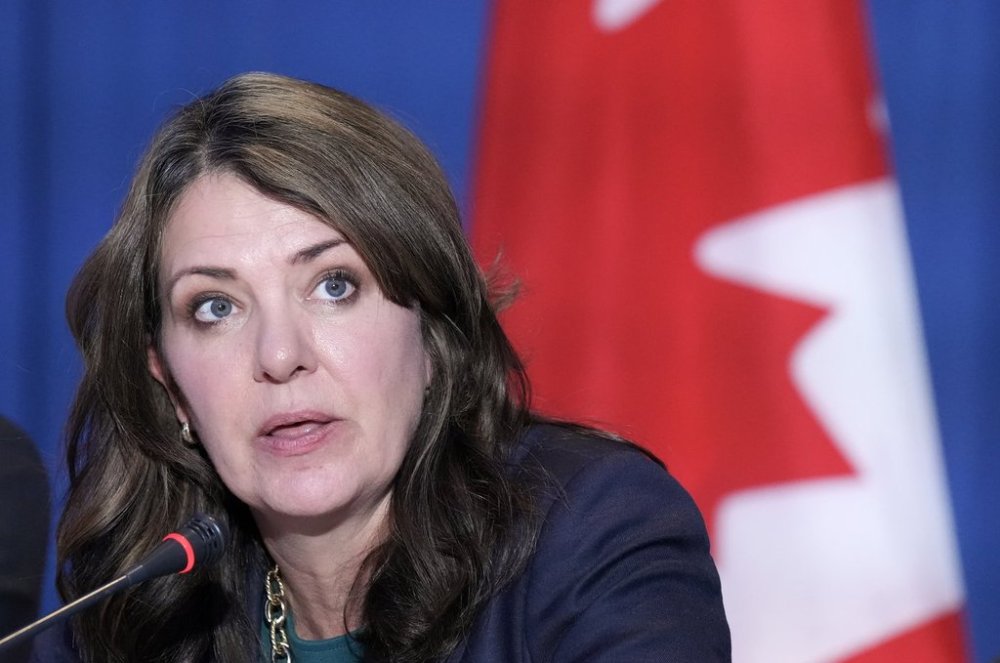Alberta premier defends COVID-19 report, unsure which recommendations to take
Advertisement
Read this article for free:
or
Already have an account? Log in here »
We need your support!
Local journalism needs your support!
As we navigate through unprecedented times, our journalists are working harder than ever to bring you the latest local updates to keep you safe and informed.
Now, more than ever, we need your support.
Starting at $15.99 plus taxes every four weeks you can access your Brandon Sun online and full access to all content as it appears on our website.
Subscribe Nowor call circulation directly at (204) 727-0527.
Your pledge helps to ensure we provide the news that matters most to your community!
To continue reading, please subscribe:
Add Brandon Sun access to your Free Press subscription for only an additional
$1 for the first 4 weeks*
*Your next subscription payment will increase by $1.00 and you will be charged $20.00 plus GST for four weeks. After four weeks, your payment will increase to $24.00 plus GST every four weeks.
Read unlimited articles for free today:
or
Already have an account? Log in here »
Hey there, time traveller!
This article was published 29/01/2025 (357 days ago), so information in it may no longer be current.
CALGARY – Alberta Premier Danielle Smith says she’s not sure which recommendations from a controversial COVID-19 report her government will implement.
The 269-page report, released publicly without notice Friday, was done by a government-appointed panel and calls for limits on COVID-19 vaccines and for health professionals not to be punished for promoting alternative treatments.
The $2-million review has been panned by doctors, academics and the Opposition NDP, with Alberta Medical Association president Dr. Shelley Duggan and the Canadian Medical Association accusing the report of being anti-science.

Speaking to reporters Wednesday, Smith said critics of the report are trying to control the narrative and said she doesn’t want to see “contrarian voices” shut out when reviewing pandemic response measures.
“I know there’s been a narrative, and the narrative has been enforced by shutting down contrarian voices,” she said.
“We’re going to listen to every voice, and we’re going to make our best assessment based on what we’re seeing with the evidence — and the evidence has changed.”
Smith cited the report’s recommendations around halting vaccines for healthy children and teens as something she’d consider, but said she didn’t “have an agenda” for what might be implemented.
“We always have to make sure that, in a world where we care about science, that all voices are heard,” she said.
“That’s what science is.”
The report was produced by a panel Smith appointed in 2022 to look at how data was collected and used to respond to COVID-19.
The report’s authors, led by Dr. Gary Davidson, call for a host of legislative and procedural changes to how the province responds to future pandemics and how doctors are permitted to treat patients.
Davidson is the former head of emergency medicine for the province’s central zone and chief of the emergency department at Red Deer Regional Hospital. He accused the government in 2021 of exaggerating and manipulating hospital admission numbers to justify public health measures.
Last year, Smith defended Davidson’s appointment to the panel, saying his “contrarian perspective” was good to have in reviewing the provincial pandemic response.
The Davidson-led report recommends COVID-19 vaccines stop being administered to healthy children and teens, and to the broader public without the full disclosure of risks.
The report also recommends legislative changes to give doctors more freedom to prescribe alternative therapies in future pandemics, saying health authorities were too restrictive when it came to off-label medication uses.
That recommendation specifically pointed to drugs like the anti-parasitic ivermectin and anti-malarial hydroxychloroquine, both of which are not approved by Health Canada for the treatment or prevention of COVID-19.
During the pandemic, the province and municipalities enforced a variety of measures to stop the spread of COVID-19, including closing businesses and schools, mask mandates, and restricting gatherings and public events.
The report said the stringency of those measures had a “small relative effect on the growth of infections.”
The report said mask requirements created risks such as “self-contamination, discomfort, a false sense of security, and challenges for vulnerable populations and in hot and humid environments.”
This report by The Canadian Press was first published Jan. 29, 2025.
— By Jack Farrell in Edmonton.
